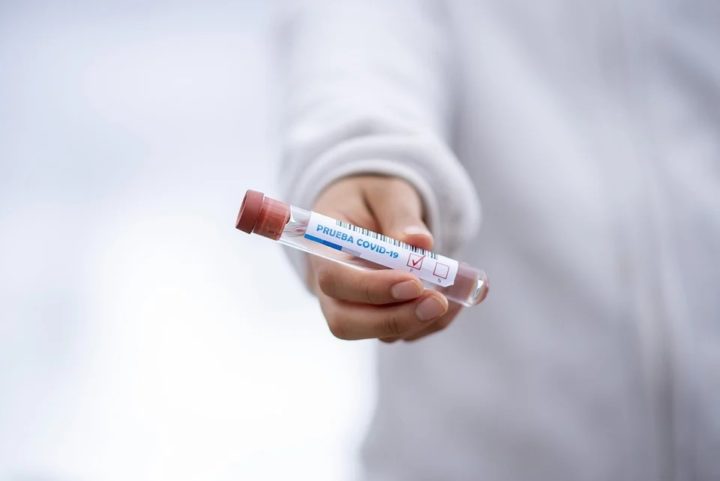- Submit News
- 501-666-6726
- [email protected]

First bondholders’ meeting on consent solicitation “went well”
July 2, 2020
U.S. reversing course on COVID-19
July 2, 2020Posted: Thursday, July 2, 2020. 6:03 pm CST.
By Aaron Humes: The New York Times has been polling health professionals on their views as to whether persons should be deliberately infected with COVID-19 to test the wide variety of vaccines being created.
Known as a “human challenge trial,” it has been used to test vaccines for some of the world’s worst diseases – typhoid, cholera, and malaria, all mostly eliminated. Unlike these, there is no cure or even effective treatment for COVID-19.
Nonetheless, according to the Times, proponents say they could save time.
An advisory panel to the World Health Organization (WHO) said last month in a draft report that challenge trials could yield important information, but would be daunting to run because of the potential to cause severe and fatal illness and high transmissibility. Among other things, it recommended that such trials be limited to healthy young people – 18 to 25 years – and the doses be administered through their noses in carefully calculated amounts.
But the panel is divided over several issues such as whether trials should be carried out if no highly effective therapy had been identified to treat participants who got sick; over whether studies in healthy young adults could predict the efficacy of a vaccine in older people or other high-risk adults; and over whether challenge trials could really speed vaccine development.
The face of the COVID-19 fight in the United States and head of the National Institute for Allergy and Infectious Diseases, Dr. Anthony Fauci, has said that challenge trials might be needed if the pandemic waned and there were not enough natural infections to determine in a traditional study whether a vaccine worked. But given the rising case numbers now, he said he expected no shortage of infections by July and August, when several large trials are scheduled to begin. The umbrella National Institutes of Health meanwhile has ruled out such trials and researchers are focusing on traditional clinical trials while preparing for human challenge trials, even developing strains of the virus that could be used to infect participants.
Proponents for challenge trials include Dr. Arthur L. Caplan, a bioethicist at NYU Langone Medical Center, and Dr. Stanley Plotkin, a vaccine expert and professor emeritus at the University of Pennsylvania, who suggested in an article published in April in the journal Vaccine that a challenge trial could take advantage of the lower death rate in people ages 18 to 29.
A team led by Dr. Nir Eyal, a bioethicist at Rutgers University, suggested choosing an age range of 20 to 45, and even proposed using a control group that would receive a placebo shot rather than the vaccine but would still be exposed to the virus, so at least some would almost certainly fall ill. This was rejected by Dr. Caplan.
Opponents include Dr. Jeffrey Kahn, director of the Johns Hopkins Berman Institute of Bioethics, who says that participants cannot be fully informed about the risks, because too little is known about the virus. “There are too many uncertainties,” he said.
Among vaccine makers there is also division. Dr. Paul Stoffels, chief scientific officer at Johnson & Johnson, said the company would consider challenge trials only if a treatment became available. He also said larger, traditional Phase 3 trials would provide more safety information.
Dr. Tal Zaks, chief medical officer of Moderna, which expects to begin Phase 3 vaccine trials this month, said in an interview that the question of a challenge trial “will likely be moot as it relates to our development.”
Others such as Dr. Adrian Hill, director of the Jenner Institute at the University of Oxford, which developed a coronavirus vaccine that is already in Phase 3 testing, said there was “potential utility” in challenge trials for vaccines and treatments. He said his institute, which has conducted such studies in the past for malaria, typhoid and other diseases, might perform one for Covid before the end of the year, to test vaccine efficacy. He said the studies were also a good way to compare vaccines. But Dr. Hill added: “Having a treatment would be helpful. By the time we get to doing this there may be one.”
Advertise with the mоѕt vіѕіtеd nеwѕ ѕіtе іn Belize ~ We offer fully customizable and flexible digital marketing packages. Your content is delivered instantly to thousands of users in Belize and abroad! Contact us at mаrkеtіng@brеаkіngbеlіzеnеwѕ.соm or call us at 501-612-0315.
© 2020, BreakingBelizeNews.com. Content is copyrighted and requires written permission for reprinting in online or print media. Theft of content without permission/payment is punishable by law.



































































Comments